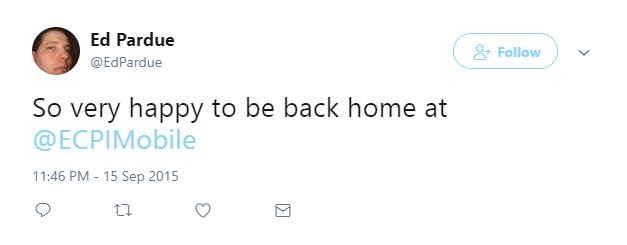How are Mobile Apps Developed?
Now that just about everyone carries a smartphone around in their pocket (77% of the U.S. population to be exact, according to Pew Research Center!), the mobile app business is booming. These useful little programs don’t make themselves, though. Mobile app development is an intricate three-part process that takes a lot of carefully executed work to pull off.
Planning your Mobile App
The first part of app development is coming up with a concept. Sounds simple enough, but bare-bones basics won’t do in this case; you have to fully flesh out your thoughts by asking the right questions as you go.
- What is the full scope of what the app needs to do?
- How can you make it as user-friendly as possible?
- What can you add to it to make it stand out from its competitors?
While other professionals answer some of these questions in corporate environments (the marketing department usually has a lot of influence here), it’s vital that the developer be part of these early stages due to their knowledge of what can and cannot work. Sometimes, a great idea violates hardware restrictions, uses too much wireless data, or takes up too much storage space on user’s phones, among other potential problems. There’s no point in dreaming up an app that is simply unworkable in real life.
When the idea and parameters have been finalized, developers must create a crude prototype version of the app (think more like sketches and concept art than an actual working piece of software). This allows them to establish the look and feel of the app as they head into the next, most important stage.
Constructing the App and Troubleshooting It
This, obviously, is the central part of the project: using the prototype app as a guideline, developers must bring that vision to life using their technical knowledge. A diverse set of skills are required for this portion, usually including proficiency with at least one coding language (Java, C#, Ruby on Rails, any will do).
Depending on the specifics of what you’re doing, you may also need to set up some background infrastructure like databases and servers. In that case, this is also the time to test the connection between these components and your app to make sure everything is synced up properly. When you're confident that everything is working as it should be, you can post it to the app marketplace of your choice.
Follow-Up for Bug Fixes and Updates
Once your app is finished and you release it on the market, you might think your job is done. Stop right there – you still have some ongoing work to do. You should have thoroughly tested your app before sending it out, but you should know that it’s very unlikely that you caught every issue. You’ll want to keep an eye on any bug reports coming in and fix those problems as soon as you can. You should also learn to triage your fixes; for example, if your app frequently crashes, it’s a far worse problem than things like minor graphics glitches and must get your attention first.
Even a perfectly functioning app isn’t technically complete, though; just because it works in its present form doesn’t mean it couldn’t be improved. Many mobile apps are in continual development even after they’ve been released to the public, updating at periodic intervals with downloadable patches to keep the product modern, usable, and attractive.
Small improvements like this are very effective at keeping the app relevant and marketable – in fact, a 2015 report by Business Insider found an extremely strong correlation between the number of updates an app had in a year and its ratings during that year.
Are You Cut Out for this Industry?
Breaking down the process of mobile app development like this reveals some hidden truths about the nature of this industry. It has a reputation for being an open field where competence matters more than credentials, but this isn’t entirely true. It’s much more multi-faceted and complex than it may first appear. While self-taught indie developers have been known to achieve reasonable success on their own, the best way to ensure that you have a full understanding of how to create a mobile app is still to study in college degree program. This gives them the best advantage when it comes to creating and updating mobile apps.
Are you interested in learning how to be a mobile app developer? Whether you want to work by yourself or for a company, you should consider earning a Bachelor of Science in Computer and Information Science with a Major in Software Development - Mobile Development Track. ECPI University helps you to get ahead with accelerated classes and year-round education. For more information on this exciting degree program, connect with a friendly admissions representative today.
It could be the Best Decision You Ever Make!
DISCLAIMER – ECPI University makes no claim, warranty, or guarantee as to actual employability or earning potential to current, past or future students or graduates of any educational program we offer. The ECPI University website is published for informational purposes only. Every effort is made to ensure the accuracy of information contained on the ECPI.edu domain; however, no warranty of accuracy is made. No contractual rights, either expressed or implied, are created by its content.
Gainful Employment Information – Software Development - Bachelor’s
For more information about ECPI University or any of our programs click here: http://www.ecpi.edu/ or http://ow.ly/Ca1ya.




